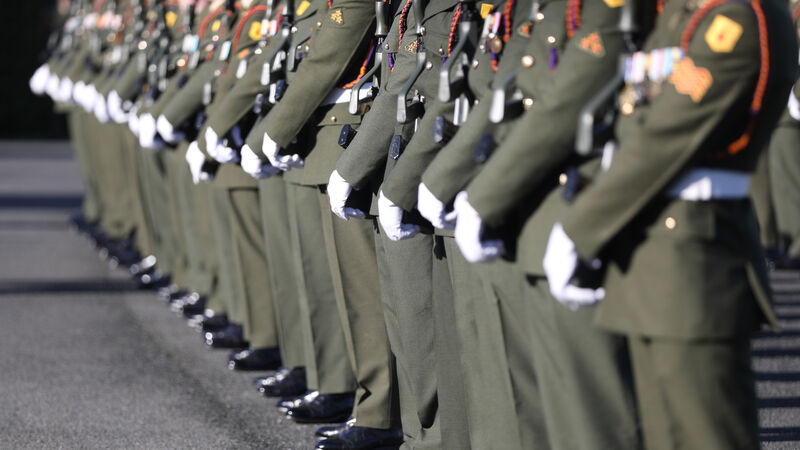State 'saved millions by not paying Defence Forces personnel overtime'

Recently obtained figures by Defence Forces representative associations appear to show a shortfall of annual leave to their members — which are also valued at millions of euro. File picture: Leah Farrell / RollingNews.ie
The State has saved millions of euro by not paying overtime to members of the Defence Forces for decades, according to a claim submitted to the European Social Rights Committee (ESRC).
EUROMIL, the umbrella body for European military associations, has sent a document to the ESRC, written by a senior Irish civil servant in the early 1990s, which shows the government was advised that the military should be legally covered by the Working Time Directive (WTD). As a consequence, Defence Forces personnel should be entitled to the same overtime payments and restrictions on working hours as other public servants.










